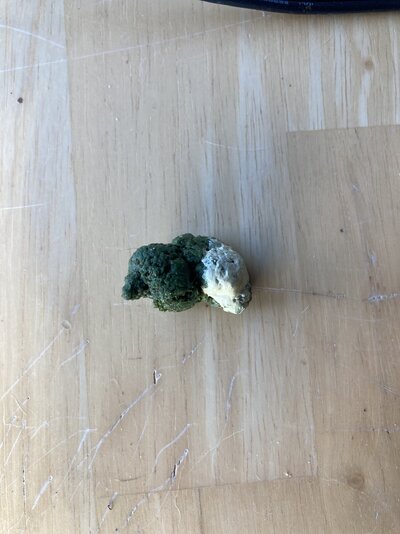My son is learning a painful lesson about his chickens. They are very vulnerable to frostbite. About 3 years ago we got a black Rampuri Aseel stag that he proceeded to cross into one of our American Game lines. We very quickly came to appreciate the black rooster was different from our games. Most of the differences were simply interesting.

When winter came around the differences proved to be very problematic. First, he could not handle worm burden making so we had to watch his weight closely and repeatedly treat with dewormer which caused rapid return to weight each time. Second, when it came to dealing with cold, he was a combination of poorly feathered and stupid. He would not protect his feet. Even during the worst weather did not seek out cover from weather and would not settle in feet to keep them warm. The first major cold event during first winter all of his toes were frozen off making so he walked around on nubs, could not scratch effectively and had to roost on flat surfaces.
Still I let my son get some chicks from hen produced by crossing with free-range Amerrican Game hen. The line she represents, and out other American Games handle the cold very well.

He raised a single stag from the pairing named Trekkor. We were very careful protecting Trekkor from the weather so he avoided frostbite issues. He also had no worm issues which I assume was inherited from his mother. My son wanted his own line of show chickens so he linebred Trekkor to one of his mother's cousins to produce young that where 1/4 aseel and 3/4 American Game.
We have been leaving those out to free-range except for a stag that was penned. The stag and 2 of 3 pullets got frostbite when none of our other 45 or so other chickens had similar issues under identical conditions.
Now my son will be messing with two of those birds to make so they can get buy on some messed up feet. I hope linebreeding one more generation will resolve the issue.
When winter came around the differences proved to be very problematic. First, he could not handle worm burden making so we had to watch his weight closely and repeatedly treat with dewormer which caused rapid return to weight each time. Second, when it came to dealing with cold, he was a combination of poorly feathered and stupid. He would not protect his feet. Even during the worst weather did not seek out cover from weather and would not settle in feet to keep them warm. The first major cold event during first winter all of his toes were frozen off making so he walked around on nubs, could not scratch effectively and had to roost on flat surfaces.
Still I let my son get some chicks from hen produced by crossing with free-range Amerrican Game hen. The line she represents, and out other American Games handle the cold very well.
He raised a single stag from the pairing named Trekkor. We were very careful protecting Trekkor from the weather so he avoided frostbite issues. He also had no worm issues which I assume was inherited from his mother. My son wanted his own line of show chickens so he linebred Trekkor to one of his mother's cousins to produce young that where 1/4 aseel and 3/4 American Game.
We have been leaving those out to free-range except for a stag that was penned. The stag and 2 of 3 pullets got frostbite when none of our other 45 or so other chickens had similar issues under identical conditions.
Now my son will be messing with two of those birds to make so they can get buy on some messed up feet. I hope linebreeding one more generation will resolve the issue.





